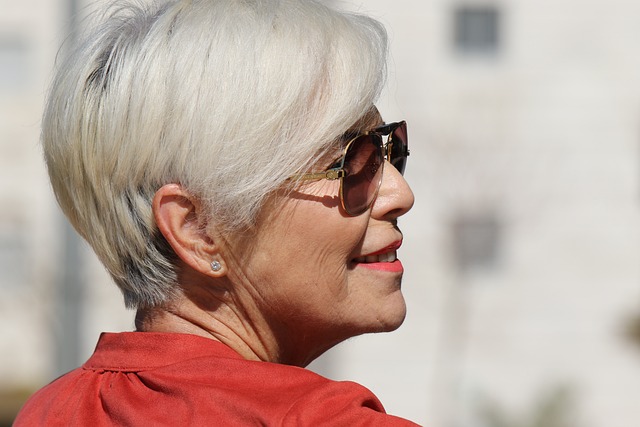Elderly companion services are dedicated to enriching the lives of seniors by providing tailored nutritional support that addresses both dietary needs and social engagement. These services ensure that meals are not only balanced and suitable for individual health conditions and tastes but also serve as a platform for companionship and interaction, combating isolation and improving mental well-being. Accredited caregivers work closely with seniors to select, purchase, and prepare meals, adapting recipes to meet nutritional goals while fostering a sense of independence. These services also assist with mealtime reminders, feeding support, and grocery shopping, aiding in health maintenance and promoting a higher quality of life. Beyond the kitchen, elderly companion services offer social connection through cooking programs that encourage community, belonging, and cognitive stimulation, all of which contribute to maintaining mental sharpness and an active lifestyle for seniors. In essence, these services are vital for supporting the holistic health and happiness of the elderly, offering a comprehensive approach to elder care.
—
Navigating the golden years often involves adapting daily routines, including meal preparation. As we age, the importance of nutritious eating, paired with meaningful social interaction, becomes increasingly significant for maintaining both physical and emotional well-being. Elderly companion services play a pivotal role in facilitating these essential aspects of life. This article delves into the intersection of meal preparation and companionship, exploring how these services not only ensure seniors receive balanced, nourishing meals but also foster a sense of belonging and joy through shared culinary experiences. We will examine the critical strategies for compassionate meal planning with senior loved ones and how collaborative cooking can enhance social engagement for the elderly. Join us as we highlight the multifaceted benefits of companion-assisted dining, emphasizing its role in enriching the lives of our seniors.
—
- The Role of Elderly Companion Services in Facilitating Nutritious Meal Preparation
- Strategies for Compassionate Meal Planning with Senior Loved Ones
- Enhancing Social Engagement Through Collaborative Cooking Experiences for the Elderly
The Role of Elderly Companion Services in Facilitating Nutritious Meal Preparation

Elderly companion services play a pivotal role in ensuring that seniors have access to nutritious meals, which are essential for maintaining health and well-being. These services recognize that proper nutrition is not just about eating the right foods but also about the social interaction that comes with meal preparation and consumption. Accredited caregivers from these services often work alongside their elderly clients to plan, shop for, and prepare meals, taking into consideration dietary restrictions, preferences, and nutritional requirements. This collaborative approach not only guarantees a balanced diet but also provides companionship, reducing the risk of isolation and depression that can accompany aging alone. The presence of a companion during meal preparation can transform an otherwise mundane task into a meaningful social activity, enriching the dining experience for seniors.
Moreover, elderly companion services are adept at tailoring meal plans to align with specific health conditions and medication regimens, ensuring that each meal supports the client’s health goals. They often provide additional benefits such as reminders for meal times, assistance with feeding if needed, and even doing the grocery shopping. This holistic approach to meal preparation and companionship ensures that seniors not only receive the nutrients they need but also enjoy the simple pleasure of sharing a meal with someone who cares about their health and happiness. These services are instrumental in promoting independence and quality of life for the elderly, making them a valuable resource for families seeking to support their aging loved ones.
Strategies for Compassionate Meal Planning with Senior Loved Ones

When planning meals for elderly loved ones, compassionate meal preparation involves considering their nutritional needs, dietary restrictions, and preferences while ensuring the process is safe and enjoyable for them. Elderly companion services often provide support tailored to seniors’ specific requirements, offering a blend of nutrition expertise and personal care. A key strategy in meal planning for seniors is to focus on nutrient-dense foods that support their health and well-being. These meals should be easy to chew and swallow, with soft textures that accommodate any dental issues or difficulties associated with aging. Additionally, incorporating a variety of colors on the plate can enhance the appeal and nutritional balance of each meal. It’s also beneficial to involve seniors in the process as much as possible, allowing them to maintain a sense of independence and control over their dining experience. Elderly companion services can assist with grocery shopping, meal preparation, and even provide meal plans that are regularly reviewed and updated to meet changing health conditions or personal preferences. This level of tailored care not only supports the physical health of seniors but also fosters social engagement and a sense of community during mealtimes. By integrating these strategies, elderly companion services ensure that mealtime remains a positive and nourishing aspect of daily life for seniors.
Enhancing Social Engagement Through Collaborative Cooking Experiences for the Elderly

Collaborative cooking experiences can significantly enhance social engagement for the elderly, offering a multitude of benefits that extend beyond mere meal preparation. These experiences, facilitated by elderly companion services, provide a platform for seniors to connect with others, share stories, and create bonds over a shared activity. The act of cooking together fosters a sense of community and belonging, as participants work in tandem to prepare nutritious and satisfying meals. This not only improves their dietary intake but also enriches their social lives, combating isolation and loneliness that are prevalent concerns among the aging population.
Elderly companion services tailor these cooking sessions to cater to individual dietary needs and preferences while ensuring safety and comfort. The interaction during meal preparation can stimulate cognitive functions and encourage verbal communication, which is vital for maintaining mental acuity in older adults. Furthermore, these programs often include nutritional education, teaching seniors about the importance of balanced diets and how to make healthier choices. This holistic approach not only addresses nutritional needs but also promotes a more active and socially fulfilling lifestyle for the elderly.
In conclusion, the significance of meal preparation in maintaining the health and well-being of the elderly is undeniable. The role of elderly companion services in ensuring nutritious meals is a testament to the impact of supportive care in this demographic’s daily lives. By implementing compassionate meal planning strategies, families and caregivers can foster meaningful connections with senior loved ones, enriching their social engagement and overall quality of life. Collaborative cooking experiences, facilitated by such services, not only serve as a nutritious activity but also as a bonding opportunity that can enhance the elderly’s sense of belonging and connection to their community. It is clear that with thoughtful planning and the support of elder companion services, we can create an environment where meal preparation is more than just sustenance—it’s a pathway to companionship and a more fulfilling life for our seniors.




